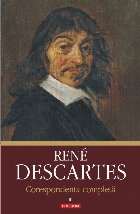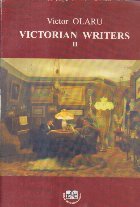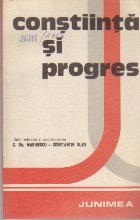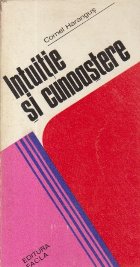
Disponibilitate: nedisponibila
Preț: 33,00 LEI
ISBN: 978-973-1997-42-1
Autor(i): Vlad Alexandrescu
Editura: Zeta Books
Colecția: Foundation of Modern Tought
Anul apariției: 2009
Nr. pagini: 409 pagini
Limba: engleza
Categorii: Limbi Străine, Limba Engleza, Filosofie, Teoria cunoasterii
As Francis Bacon put it on the frontispiece of his Novum Organum, grafting an apocalyptic vision on a research program, multi pertransibunt et multiplex erit scientia. The development of science becomes steadily associated with the end of earthly life, a theme that would resound deeply in Western thought up until Goethe’s Faust. What grounds then the multiplicity of knowledge? What is the common trunk out of which all realms of knowledge unfold, like the burgeoning branches of the celebrated tree? After the Augustinian imprint of the first Christian centuries and after the admirable effort of the high scholastics’ Aristotelian and Christian synthesis, the seventeenth century undertakes new scientific work with the need of a new steady ground. All the big names of the modern era, Francis Bacon, Galileo, Descartes, Robert Boyle, Spinoza or Leibniz, found themselves engaged in the search for a common trunk of wisdom, each of them nourishing the intimate conviction that they possessed the philosophical core which would satisfy the learned men’s newly found appetite for indefinitely extending knowledge. In doing this, all of these masters needed to confront the philosophical tradition that they received, reworking and merging together the old structures of science through this epistemological prism of the search for the unity of knowledge. (Vlad Alexandrescu)
CONTENTS
Vlad Alexandrescu: Foreword
I. Faces of knowledge
Nathan Smith: Mathesis, Mathematics and Method in Descartes’s Regulae: A Reprise
Elodie Cassan: Théorie de la science et physique chez Descartes
Vlad Alexandrescu: The double question of the individuation of physical bodies in Descartes
Roger Ariew: Descartes and Leibniz on the Principle of Individuation
Lucian Petrescu: Descartes and the Internal Senses. On memory and remembrance
Stephen Gaukroger: The unity of knowledge: natural philosophical foundations of Spinoza’s politico-theology
Daniel Garber: Leibniz, Theology and the Mechanical Philosophy
Sorana Corneanu: Locke on the Study of Nature
II. Mapping Knowledge and Traditions
Massimiliano Savini: La Panacea Philosophica de Johann Heinrich Alsted: un projet architectonique d’accès au savoir
Dana Jalobeanu: The fascination of Solomon’s House in seventeenth century England: Baconianism revisited
Giulia Belgioioso: «Toute hyperbole tend là, de nous amener à la vérité par l’excès de la vérité, c’est-à-dire par la mensonge»: les parcours hyperboliques qui amènent à la vérité de Balzac à Descartes
Igor Agostini: Caterus on God as “ens a se”
Justin E.H. Smith: Descartes and Henry More on living bodies
Mihnea Dobre: The Scientific Journals of the Seventeenth-Century: Cartesianism in Journal des Sçavans and Philosophical Transactions, 1665-1670
Eric Lewis: Sir Kenelm Digby and the Weapon Salve in Seventeenth Century England
Brandon Look: Leibniz and Locke on Real and Nominal Essences
Comandă online Branching Off - The Early Moderns in Quest for the Unity of Knowledge la 33,00 lei isbn 978-973-1997-42-1 scrisă de Vlad Alexandrescu, tiparită la editura Zeta Books face parte din colecția Foundation of Modern Tought. cu plata ramburs sau online cu cardul. Momentan titlul Branching Off - The Early Moderns in Quest for the Unity of Knowledge nu este disponibil însa vă puteți înscrie pentru a fi notificat în momenul reaprovizionarii.

Corespondenţa completă Volumul al III-lea: 1645-1650
Polirom
Rene Descartes, Vlad Alexandrescu, Grigore Vida, Cristian Moisuc, René Descartes
9789734685950
1048 pagini
An: 2021

Copiii lui Irod. Raport moral asupra copiilor lasati in grija statului
Humanitas
Vlad Alexandrescu
9789735063993
176 pagini
An: 2019

Gramatica limbii engleze
Grupus
George Gruia
398 pagini
An: 1992

Victorian Writers, II
Universitaria
Victor Olaru
225 pagini
An: 2006

English 9th Form
Moskva
175 pagini
An: 1966

Eighth Form English - Pupil s Book
Moskva
A. Starkov
191 pagini
An: 1977

Peggy of the chalet school
Armada
Elinor M. Brent-Dyer
192 pagini
An: 1979

Constiinta si Progres
Junimea
322 pagini
An: 1984

Intuitie si cunoastere
Facla
Cornel Harangus
190 pagini
An: 1980

Stiinta contra imposibil. Orizonturile cunoasterii
Politica
Ion Vaduva Poenaru
308 pagini
An: 1988

Practica - Criteriul adevarului in stiinta
Stiintifica
I. D. Andreev
397 pagini
An: 1963

Descoperiri stiintifice - Legenda si adevar
Albatros
Virgil Spulber, MIHAI POPESCU
291 pagini
An: 1987

Gramatica limbii engleze
Grupus
George Gruia
398 pagini
An: 1992

Maly slownik techniczny francusko-polski (Lexique technique francais-polonais)
Wydawnictwa Naukowo-Techniczne Warszawa
J. Szarski
248 pagini
An: 1964

Manual de limba sanscrita, Volumul I
Cununi de Stele
Amita Bhose
254 pagini
An: 2011

Dictionar Italian-Roman (60 000 cuvinte, Facon)
Stiintifica
Nina Facon
1019 pagini
An: 1971

Victorian Writers, II
Universitaria
Victor Olaru
225 pagini
An: 2006